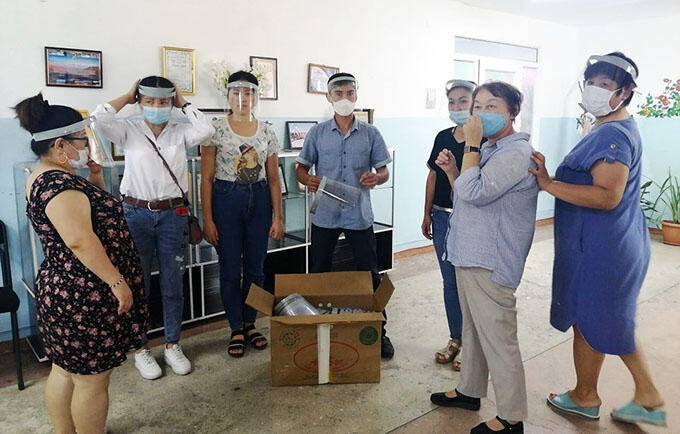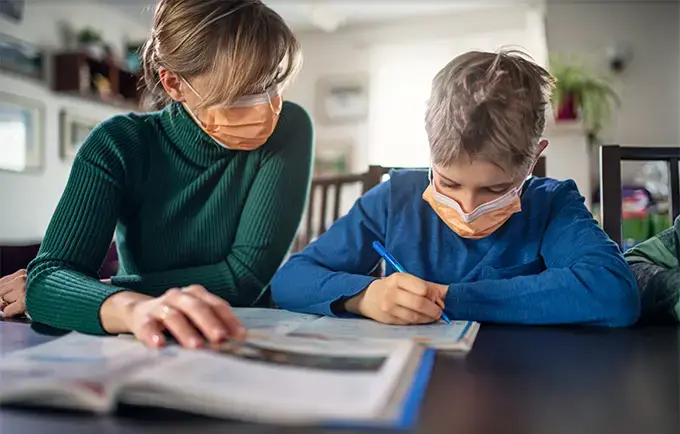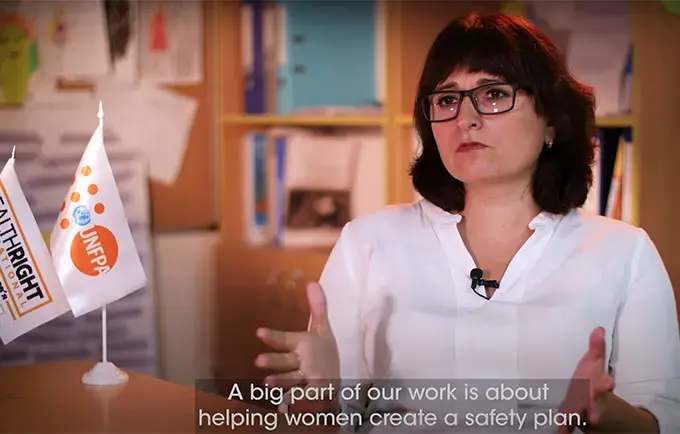ALMATY, Kazakhstan — Face masks are globally recognized as a crucial tool for fighting the COVID-19 pandemic, but for some people, they can also be a barrier to accessing critical information about protecting themselves from the coronavirus.
People with hearing impairment or hearing loss rely on both sign language and lip-reading in order to communicate, explains Yelena Ryzhikh, a sign-language interpreter in Almaty.
“A single sign may have multiple different meanings, so when you block lip-reading by covering the lower part of a person’s face with a mask, communicating based only on signs becomes very tricky,” she says.
Surveys carried out among persons with disabilities with Kazakhstan indicate that they are less likely to be able to access accurate information about COVID-19. They are also increasingly worried about experiencing violence within their families due to rising domestic tensions associated with pandemic-related economic losses and anxieties.
“When we surveyed persons with disabilities, 38 per cent said their relationships with family members had become worse under lockdown,” says Gaziza Moldakulova, National Coordinator on Population, Development and Gender for UNFPA Kazakhstan. “And 72 per cent said they wouldn’t turn for help to the police, medical or social workers, or other services if faced with violence.”
The need for interpreters or other assistance limits the access of persons with disabilities to protection services, Moldakulova added.
Pandemic exacerbates challenges and risks
Persons with disabilities across the Eastern Europe and Central Asia region face similar challenges and risks as a result of the COVID-19 pandemic. Some of them spoke with Special Olympics as part of a regional consultation on the lived experiences of women, girls, gender-non-conforming persons and youth with disabilities during the COVID-19 crisis, carried out with support from UNFPA and Women Enabled International.
“As with other humanitarian crises, those who are most marginalized in everyday life have been most vulnerable during the pandemic and its associated lockdowns,” a report on the consultation concluded.
Difficulties meeting basic household needs, barriers in access to online education and services, increased risk of violence, lack of social connections and related struggles with mental and emotional well-being were among the issues identified by the consultation as having been exacerbated by the pandemic.
UNFPA support for persons with disabilities
UNFPA and its partners are working around the region to help provide the support that persons with disabilities need during the COVID-19 pandemic and beyond. In Kazakhstan, UNFPA and the Association of Women with Disabilities “Shyrak” have provided 1,500 transparent protective shields to professional sign-language interpreters like Ryzhikh and others involved in facilitating access to information and services for people with disabilities during the pandemic.
Shyrak, UNFPA and the National Women’s Commission also developed a series of videos with sign-language interpretation that have been broadcast on several TV channels. The videos provide information to persons with disabilities on subjects such as how to protect themselves from coronavirus and what to do when faced with violence.

In Azerbaijan, UNFPA and UNDP jointly hosted a series of online webinars for people with disabilities on topics including protection from COVID-19. In North Macedonia, UNFPA has supported a youth-led COVID-19 response organized by Y-PEER, including online workshops and campaigns with young people with disabilities. UNFPA in North Macedonia has also provided financial support to the Health Education and Research Association (HERA) to distribute hygiene packages for people with disabilities in areas of the country at high risk for COVID-19.
“The situation with COVID-19 teaches us the importance of taking care not only of ourselves, but also those around us,” says Lyazzat Kaltayeva, the chairperson of Shyrak NGO in Kazakhstan.
“Sign-language interpreters are on the frontlines providing services to persons with hearing disabilities,” adds Kaltayeva. “Providing them with transparent face shields and making information available for persons with disabilities are steps towards a society where everyone can receive the knowledge they need in a timely manner – which can help keep people healthy and save lives.”




